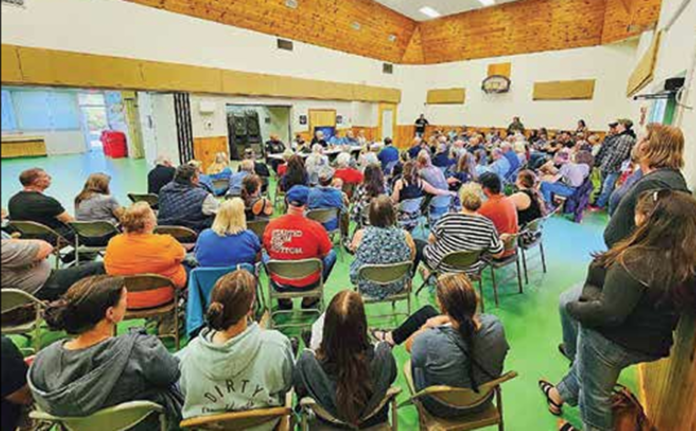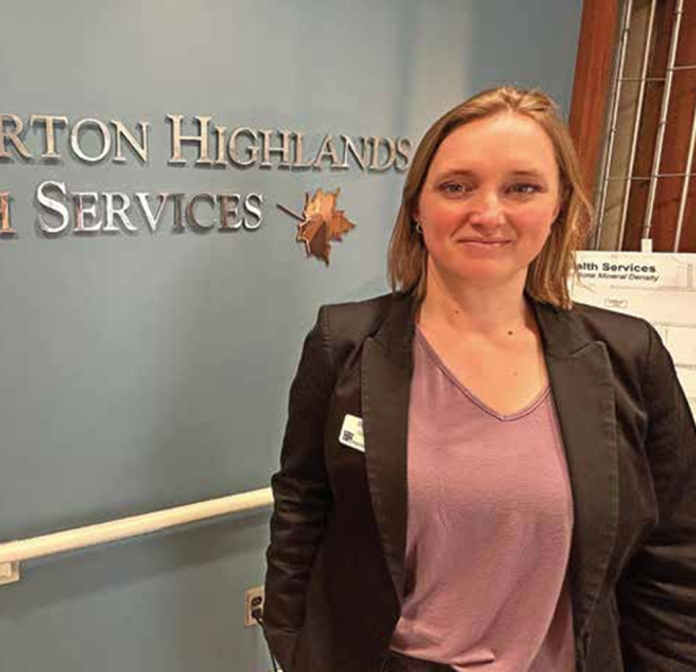With Pride in the Highlands’ annual week long celebration here, R.C. Hannah, a queer author who grew up in Haliburton County, says he will be back in town this weekend promoting his latest fictional work, Warforged.
Set in an entirely different universe from his post-apocalyptic thriller Death and Red Trilliums Haliburton – Book One, which was released last summer, Hannah’s latest novel kickstarts a brand-new sci-fi series.
The 353-page Warforged was published in May and is geared towards young adults, said Hannah, real name Codie Hunt.
“It’s like a flashy sci-fi that takes place inspace completely detached from the dark and gritty. I had a little fun with the writing, I had to do a ton of research because for readers of the genre, if the science doesn’t check out it kind of takes them out of the book,” Hannah said.
The protagonist, Crash McDuff, is a pilot and “professional pain in the ass,” Hannah said. After being captured by the Trask Imperium, he’s sent behind enemy lines to gather intel for a war he isn’t sure he agrees with. Previously thinking he was incapable of love, McDuff struggles to navigate a romance that was never part of his mission.
Hannah said the book is the first installment of a planned trilogy.
He’s also working on the second feature of Death and Red Trilliums, while a two-book romance duology is also percolating.
For some fiction writers, juggling three different worlds would be a practical impossibility – but Hannah said it’s
something he’s basically been doing his entire life.
“I have horrible insomnia. For years, I would tell stories in my head to fall asleep. Then, one day, I decided I’d try writing some of them down. I have had a bazillion ideas, so I figured some of them are solid enough that I could flesh them into a book,” Hannah said.
He spent a year on his first novel, which has performed well since it was published in May 2024. He’s sold over 400 copies, released a hardback copy and recorded an audio book.
“It definitely was a surprise – a debut novel from an unknown author, there’s like a 90 per cent chance it’s going to disappear into the ether. There are thousands of books published everyday, but it did really well,” Hannah said. “It motivated me to keep pursuing the dream.”
Running his own furniture delivery company in the GTA provides Hannah the opportunity to set his own schedule.
Business has been good since launching in 2018, allowing him, now, to dedicate more time to his writing.
He’s aiming to release Death and Red Trilliums Haliburton – Book 2 later this year. It picks up from where readers left Cody Thomas, a Haliburton man navigating life in an undead Highlands region. The next installment will take place in the County and Fenelon Falls.
“I’m starting to expand the circle of what we’re seeing in the world,” he said.
Hannah will have a booth at Rainbow Streetfest in Minden Aug. 24, where he will be selling copies of his two books.
Commenting on the recent rebranding of Pride in the Highlands, from Minden Pride, Hannah felt it was a positive, long overdue move.
“To see that the whole area has expanded and become a part of this is great – there’s a lot of things slipping the other way right now socially, so I’m glad to see that at least my hometown is stepping forwards instead
of backwards,” Hannah said.










